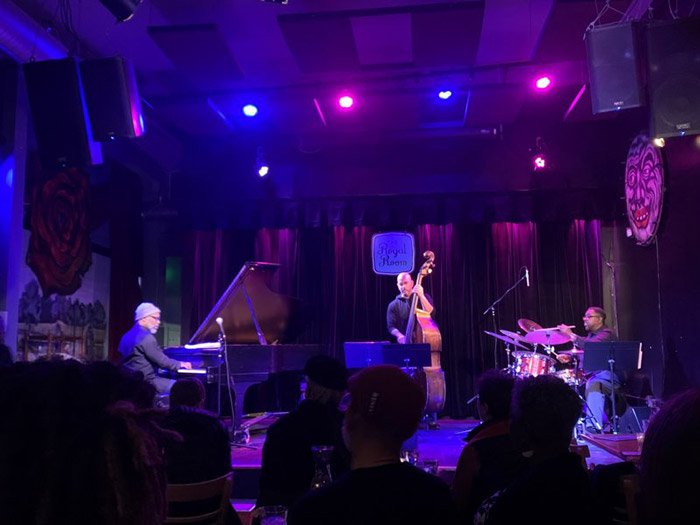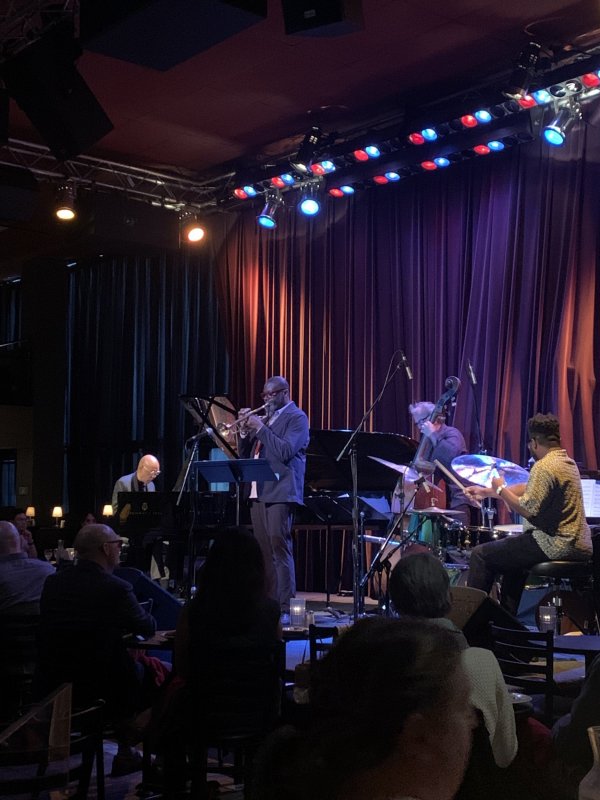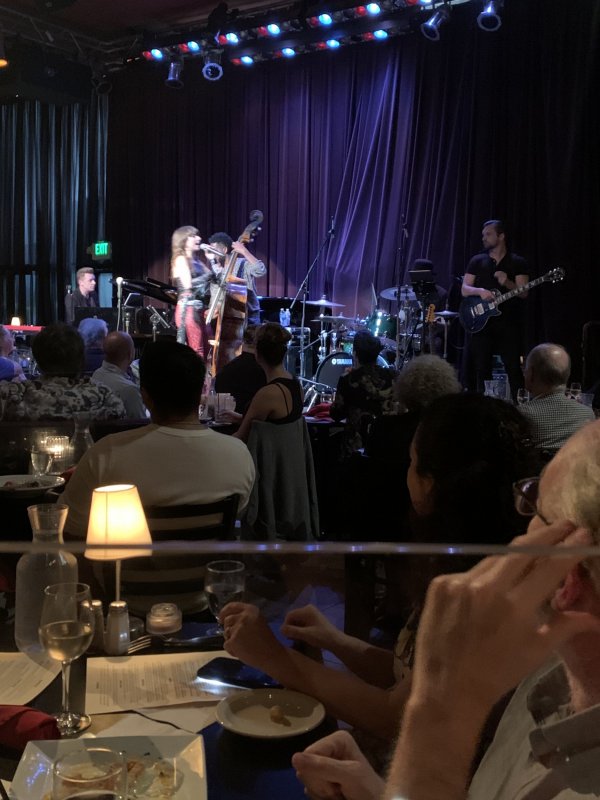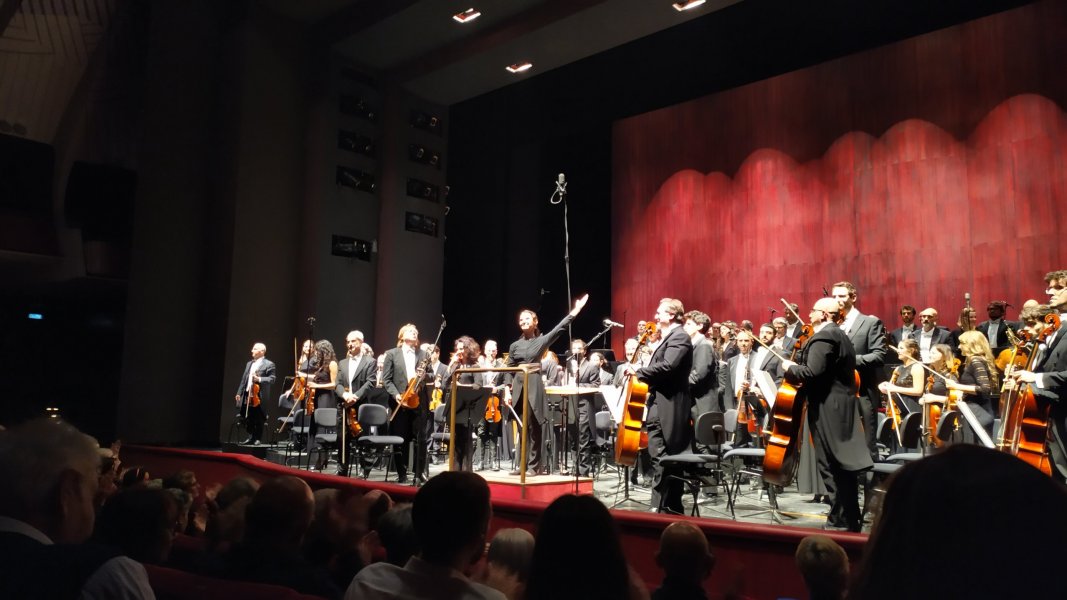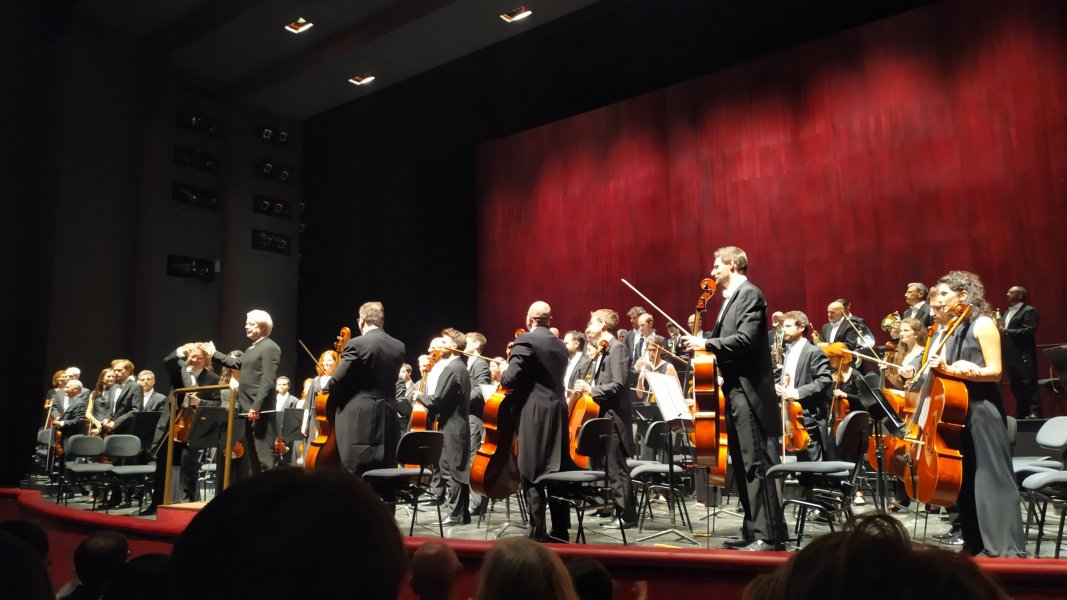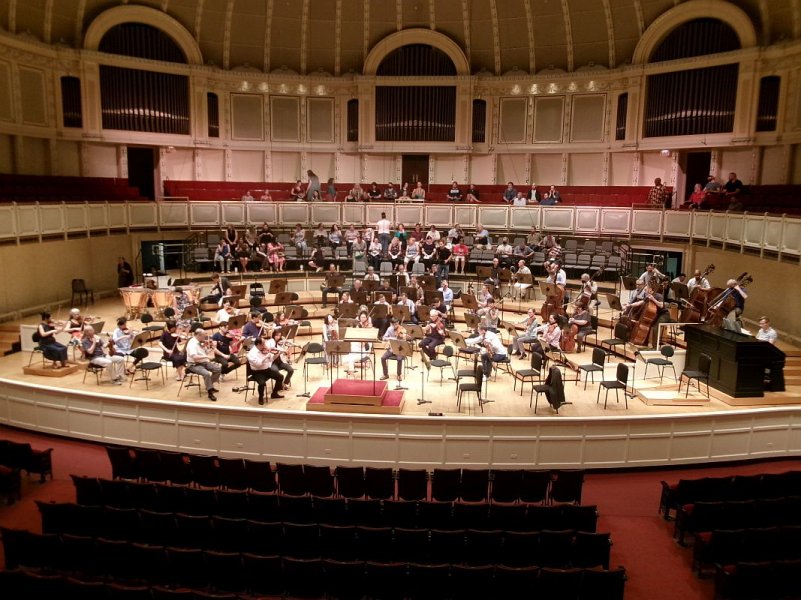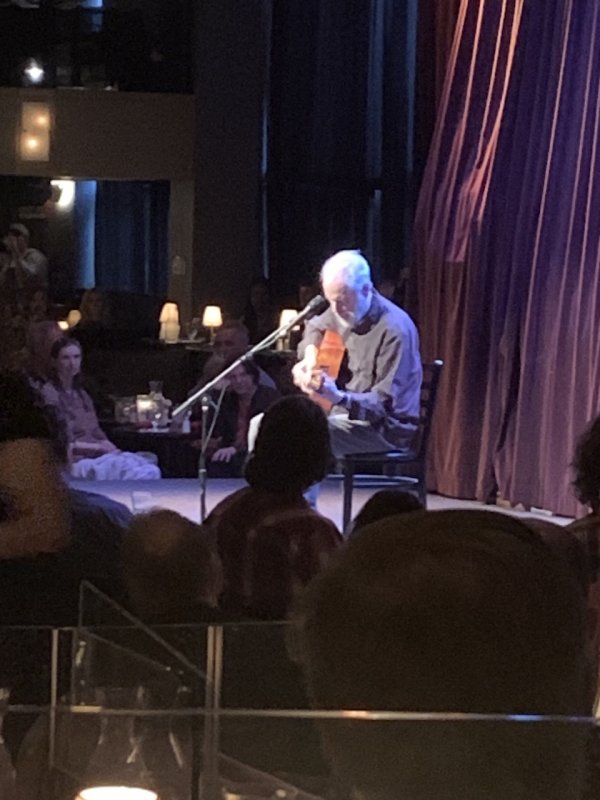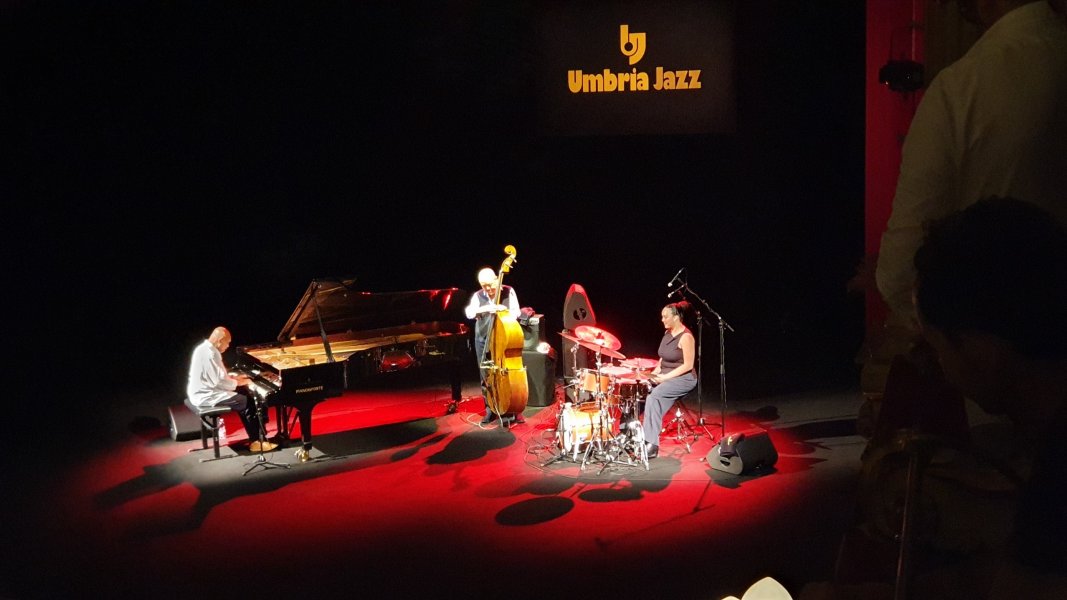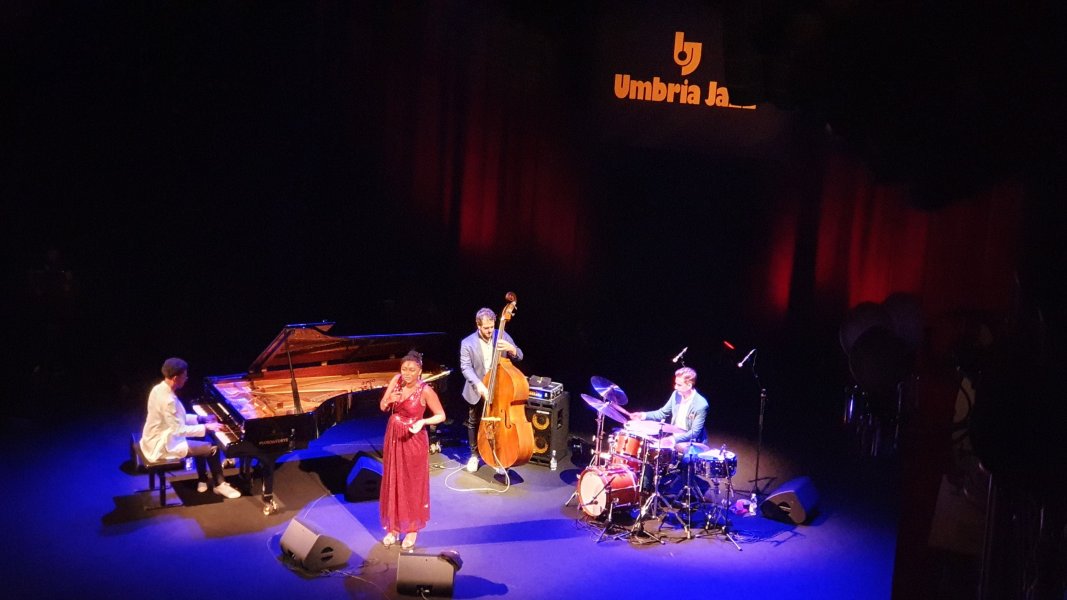While everyone is enjoying the latest offerings at Munich, I found something nice to do here in NY.
Two nights ago, we went to see Gustavo Dudamel in his new home at Geffen Hall at Lincoln Center conducting Mahler's 9th symphony with the New York Philharmonic. It was notable for several reasons. To begin, it was so lovely seeing 2200 people pay good money to hear music written over 110 years ago. Not Taylor Swift, Bugs Bunny (of whatever his name is), or some rapper whose name I can hardly spell, but good ol' Mahler. The audience was surprisingly multigenerational but as you would guess, mostly older. For a variety of reasons, this concert had a real "happening" vibe to it with tickets being sold on site by scalpers for $500 and up. Taylor Swift prices? Not quite. But not bad for a long dead composer. Next, was the tremendous and unanticipated audience applause Dudamel received when he walked on stage. This was his first appearance since the announcement in February that he would be the next music director of the NY Phil and the audience gave him a 5 min standing ovation before a single note was played.
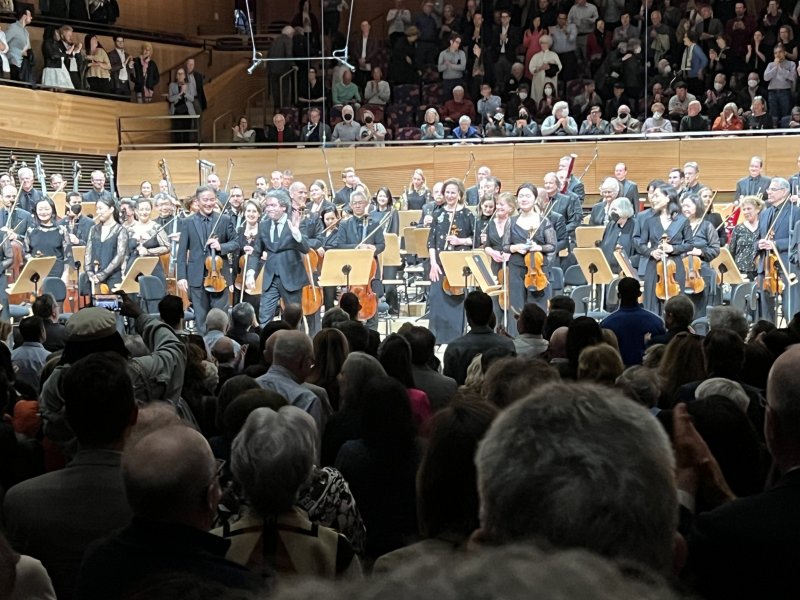
This was only my second visit to the new Geffen and I was impressed again by the sound which was immediate and full. (I'm still trying to figure out where to sit but now feel comfortable subscribing to a series for next year.). As far as the performance, the first thing I noticed was that Dudamel conducted without a score. While that's not unusual for war horses such as Beethoven's 5th, M9 is not that commonly performed so I was impressed Dudamel did it from memory (especially since I can't remember what I ate for lunch yesterday). The performance itself was quite good but there are so many great M9's that comparisons are meaningless. Far more moving to me was the music and what Mahler was trying to say. To begin, he had to deal with the curse of the 9th. When he composed it, he knew full well that the 9th symphony was almost an impossible hurdle to clear as neither Beethoven, Schubert or Bruckner managed to exceed 9 symphonies. In fact, after writing his 8th symphony Mahler wrote Das Lied von der Erde which, while structurally a symphony, was able to be disguised as a song cycle. So when he wrote his 9th symphony he thought he had beaten the curse, but died with his 10th symphony incomplete. He completed the 9th in 1909 but never lived to hear it performed. He died in 1911 (at age 50).
M9 was inspired by 4 major events in Mahler's life. The first was that his wife Alma has an affair with a young architect (who she eventually married). Second, his 4 year old daughter died in 1907 from complications of scarlet fever and diphtheria. Third, he lost his job as conductor of the Vienna Philharmonic due to anti-semitism (his late conversion to Catholicism apparently did not appease his Vienna critics). And if that was not enough, he was diagnosed with a heart condition that was ultimately fatal (he died from bacterial endocarditis in 1911). These were the things going on in his life when he wrote the 9th. To say the least, it is not exactly a happy symphony. Rather it is a magnificent composition about a man that knew he was dying, who expressed a deep regret for knowing he had to give up everything about life that he loved, and did so regretfully, angrily and reluctantly, but ultimately had to find way to make peace with it. That's what the 9th is all about. There are moments in that symphony that are so beautiful one wonders what human could possibly have written such music, as well as moments so painful that you can hear Mahler screaming "hell no, I won't go" which then turn to mournful sadness in hearing him lament what he knows is inevitable. The final moments of the symphony are as quiet as a prayer as it is when Mahler finally makes peace with himself (and with God). If you have tears in your eyes at the conclusion of this work, you would not be alone.
Mahler's 9th is magnificent not only because it is a hell of a musical ride, but the way it makes you feel at the end of the ride. We can look to Bernstein who perhaps said it best: "no person of sensibility can come away from the Ninth Symphony without being exhausted and purified. And that is the triumphant result of all this purgatory, justifying all excesses: we do ultimately encounter an apocalyptic radiance, a glimmer of what peace must be like".
